31 mar 2016
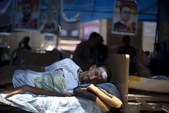
A Palestinian man lies under a tent in front of the Red Crescent offices in Gaza City on June 2, 2014 after he stopped eating in solidarity with 125 prisoners on long-term hunger strike in Israeli jails
A Palestinian prisoner continued his hunger strike for the eighth consecutive day in protest of his administrative detention by Israel, the Palestinian Prisoner’s Society (PPS) said Thursday.
The family of 34-year-old Palestinian prisoner Mohammed Dawood from al-Duheisha refugee camp in the southern occupied West Bank district of Bethlehem told PPS that their son was initially released in the Gilad Shalit prisoner exchange deal but detained again without charge on Nov. 8, 2015.
PPS said in a statement that Dawood, who is currently being administratively detained in Israel's Ofer prison, had served five years out of his 10-and-a-half-year prison sentence before he was released in the 2011 Shalit exchange.
Several Palestinians released during the Shalit deal have since been rearrested or exiled to the Gaza Strip. Over 1,000 Palestinian detainees were released in the Egypt-brokered 2011 agreement between Hamas and Israel in exchange for Israeli soldier Gilad Shalit, who was held captive by Hamas for five years.
At least 50 Shalit-deal prisoners were rearrested in the summer of 2014 during a detention campaign referred to as "Operation Brother's Keeper," in which Israeli forces detained at least 800 Palestinians without charge or trial and killed nine civilians.
At the time of their re-arrest, Shalit-deal prisoners released a statement contesting Israel's violation of the deal, saying they had demonstrated commitment to its terms.
The announcement of Dawood’s hunger strike comes after imprisoned Palestinian journalist Muhammad al-Qiq was suddenly transferred from HaEmek Hospital in Afula to a medical clinic in al-Ramla prison last week amidst his recovery from a grueling 94-day hunger strike that ended Feb. 26 and brought him close to death.
Al-Qiq initially went on hunger strike in late November to protest the torture and ill-treatment he said he faced in Israeli custody, but his protest quickly developed into another bid to challenge Israel's use of administrative detention -- internment without trial or charge.
After being in critical condition for weeks, with doctors and rights groups repeatedly warning that he has stood on the cusp of death, his lawyers struck an eleventh hour deal with the Israeli authorities, pushing the date of his release to May 21.
Numerous international bodies, including the UN and European Union, condemned Israel for its continued incarceration of al-Qiq, as well its use of administrative detention for nearly 700 other Palestinian prisoners.
A Palestinian prisoner continued his hunger strike for the eighth consecutive day in protest of his administrative detention by Israel, the Palestinian Prisoner’s Society (PPS) said Thursday.
The family of 34-year-old Palestinian prisoner Mohammed Dawood from al-Duheisha refugee camp in the southern occupied West Bank district of Bethlehem told PPS that their son was initially released in the Gilad Shalit prisoner exchange deal but detained again without charge on Nov. 8, 2015.
PPS said in a statement that Dawood, who is currently being administratively detained in Israel's Ofer prison, had served five years out of his 10-and-a-half-year prison sentence before he was released in the 2011 Shalit exchange.
Several Palestinians released during the Shalit deal have since been rearrested or exiled to the Gaza Strip. Over 1,000 Palestinian detainees were released in the Egypt-brokered 2011 agreement between Hamas and Israel in exchange for Israeli soldier Gilad Shalit, who was held captive by Hamas for five years.
At least 50 Shalit-deal prisoners were rearrested in the summer of 2014 during a detention campaign referred to as "Operation Brother's Keeper," in which Israeli forces detained at least 800 Palestinians without charge or trial and killed nine civilians.
At the time of their re-arrest, Shalit-deal prisoners released a statement contesting Israel's violation of the deal, saying they had demonstrated commitment to its terms.
The announcement of Dawood’s hunger strike comes after imprisoned Palestinian journalist Muhammad al-Qiq was suddenly transferred from HaEmek Hospital in Afula to a medical clinic in al-Ramla prison last week amidst his recovery from a grueling 94-day hunger strike that ended Feb. 26 and brought him close to death.
Al-Qiq initially went on hunger strike in late November to protest the torture and ill-treatment he said he faced in Israeli custody, but his protest quickly developed into another bid to challenge Israel's use of administrative detention -- internment without trial or charge.
After being in critical condition for weeks, with doctors and rights groups repeatedly warning that he has stood on the cusp of death, his lawyers struck an eleventh hour deal with the Israeli authorities, pushing the date of his release to May 21.
Numerous international bodies, including the UN and European Union, condemned Israel for its continued incarceration of al-Qiq, as well its use of administrative detention for nearly 700 other Palestinian prisoners.
10 mar 2016

The Israeli Ofer military court on Wednesday sentenced the Palestinian lady Mona Hussein Qa’dan to three years and a half in jail.
Mona’s brother, Mu’awiya, said the court rule was issued despite an earlier appeal filed to the court.
The Israeli Salem military court had sentenced the detainee to 70 months in jail and a fine of $7,500 before the sentence was reduced to 41 months.
Mona was arrested by the Israeli occupation soldiers at her own home in Jenin’s southern town of Arraba on November 13, 2012.
Mona, the fiancée of the life-sentenced Palestinian detainee Ibrahim Ighbariya, has been held in Israeli jails for a total of five years.
65 female Palestinian prisoners, including 19 minors, have been incarcerated in Israeli lock-ups. 12-year-old Dima al-Wawi, sentenced to a four-month prison-term and a two-thousand-dollar bail, is the youngest Palestinian female detainee. She is currently serving her sentence in the HaSharon lock-up.
Mona’s brother, Mu’awiya, said the court rule was issued despite an earlier appeal filed to the court.
The Israeli Salem military court had sentenced the detainee to 70 months in jail and a fine of $7,500 before the sentence was reduced to 41 months.
Mona was arrested by the Israeli occupation soldiers at her own home in Jenin’s southern town of Arraba on November 13, 2012.
Mona, the fiancée of the life-sentenced Palestinian detainee Ibrahim Ighbariya, has been held in Israeli jails for a total of five years.
65 female Palestinian prisoners, including 19 minors, have been incarcerated in Israeli lock-ups. 12-year-old Dima al-Wawi, sentenced to a four-month prison-term and a two-thousand-dollar bail, is the youngest Palestinian female detainee. She is currently serving her sentence in the HaSharon lock-up.
8 mar 2016
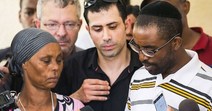
The family of Israeli soldier Abraham Mengistu, who is believed to be held captive in Gaza, has urged the Israeli street to pressure the government to work on having its son released.
Israel's channel 2 quoted Mengistu's brother as saying that the Israeli street has to move to pressure the government to move for his brother's release. For their part, the parents of the captive soldier said they would travel soon to New York to urge the UN to pressure Hamas to bring back their son.
They also said that if the UN failed to do so, they would personally go to Hamas in Gaza to have their son back. The Hebrew media had revealed months ago that soldier Mengistu, an Israeli Ethiopian Jew, crossed into Gaza in September 2014 when he was captured by the armed wing of Hamas.
Hamas, for its part, still refuses to disclose information about its detention of Mengistu or specify the number of captive soldiers in Gaza until Israel releases all Palestinian prisoners freed in Shalit's swap deal then recaptured.
Israel's channel 2 quoted Mengistu's brother as saying that the Israeli street has to move to pressure the government to move for his brother's release. For their part, the parents of the captive soldier said they would travel soon to New York to urge the UN to pressure Hamas to bring back their son.
They also said that if the UN failed to do so, they would personally go to Hamas in Gaza to have their son back. The Hebrew media had revealed months ago that soldier Mengistu, an Israeli Ethiopian Jew, crossed into Gaza in September 2014 when he was captured by the armed wing of Hamas.
Hamas, for its part, still refuses to disclose information about its detention of Mengistu or specify the number of captive soldiers in Gaza until Israel releases all Palestinian prisoners freed in Shalit's swap deal then recaptured.
28 feb 2016

Thousands of Israelis on Saturday participated in a march in the Galilee to demand their government to pay attention to the issue of captive soldier Oron Shaul in the Gaza Strip and work on having him released.
The participants in the march, which was attended by the family of Shaul, toured agricultural areas around Lake Tiberias while chanting slogans and carrying banners calling for getting the soldier back as soon as possible and not forgetting him.
In press remarks, Zahava Shaul, the mother of the soldier, appealed to the Israeli government to necessarily work on bringing her son home, claiming that he had gone to Gaza to defend Israel.
The participants in the march, which was attended by the family of Shaul, toured agricultural areas around Lake Tiberias while chanting slogans and carrying banners calling for getting the soldier back as soon as possible and not forgetting him.
In press remarks, Zahava Shaul, the mother of the soldier, appealed to the Israeli government to necessarily work on bringing her son home, claiming that he had gone to Gaza to defend Israel.
24 feb 2016
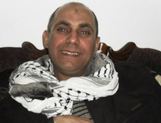
Ayman Jaradat
Unidentified gunmen shot dead a "high-profile" Palestinian security officer on Wednesday in the northern occupied West Bank town of Silat al-Harithiya in the Jenin district, a Palestinian police spokesperson said.
Luay Irzeiqat said the officer was evacuated to the hospital but died of his wounds shortly after.
Irzeiqat identified the officer as Ayman Jaradat, a brigadier general in the Palestinian National Security forces and a leader in the Black Panthers, a military offshoot of Fatah.
The spokesperson said "a large number" of Palestinian police are in the Silat al-Harithiya area investigating the incident.
A spokesman for Jenin's PLO office, Ali Zakarna, confirmed that Jaradat had been shot by an unidentified assailant.
Zakarna said the slain officer was a former prisoner of Israel sentenced to life in prison, but was released as part of the 2011 Gilad Shalit deal.
Zakarna highlighted that the Fatah movement in Jenin released a statement denouncing the murder of Jaradat and declared that "it will be lawful to kill the murderer."
The Palestinian Prisoners' Society also denounced the murder of Jaradat, and urged the Palestinian Authority to take serious procedures against the killer so as to "prevent repetitions of such a crime."
Fatah's statement highlighted that Jaradat may have been killed because he was accused of involvement in the killing of a "suspected collaborator with the Israeli occupation."
Gunmen Assassinate A Palestinian Security Officer, Former Political Prisoner, In Jenin
A group of unknown gunmen assassinated, on Wednesday afternoon, a former political prisoner and a senior security leader, in Sielet al-Harethiyya town, south of the northern West Bank city of Jenin.
Ali Zakarna, spokesperson of the Palestinian political factions in the Palestine Liberation Organization (PLO), said Brigadier Ayman Jaradat, 40, was shot and seriously injured, and died from his wounds in the Jenin governmental hospital.
Jaradat was shot during celebrations welcoming Emad Zyoud, who was released from an Israeli detention center.
Zakarna said that Jaradat was repeatedly kidnapped and imprisoned by Israel, and that he was sentenced to several life terms, and was released under the Shalit Prison Swap Agreement, after spending 23 years in prison.
Following his death, the Palestinian Authority deployed hundreds of security officers in the town, in an attempt to prevent retaliatory attacks, or any incident that could lead to additional confrontations, and casualties.
Palestinian Police spokesperson Luay Erzeiqat said the police initiated an investigation into the incident, and that the police, and security forces, will ensure calm in Jenin.
It is worth mentioning that the Fateh movement of President Mahmoud Abbas issued a statement vowing retaliation.
It added that Jaradat was a member of the "Black Panther" resistance group in Jenin, and that the Al-Aqsa Brigades, the armed wing of the movement, “will avenge his murder.”
Initial investigation revealed that Jaradat might have been killed in connection with the death of a Palestinian, who was a collaborator with Israel, and was killed in the First Palestinian Intifada of 1987.
Zakarna said that the shooter is known, and that he managed to escape with the help of some of his relatives.
On its part, the Palestinian Prisoners Society (PPS) issued a statement strongly denouncing Jaradat’s assassination, and said that he was a well-known figure and a prominent leader, including when he was imprisoned by Israel.
Unidentified gunmen shot dead a "high-profile" Palestinian security officer on Wednesday in the northern occupied West Bank town of Silat al-Harithiya in the Jenin district, a Palestinian police spokesperson said.
Luay Irzeiqat said the officer was evacuated to the hospital but died of his wounds shortly after.
Irzeiqat identified the officer as Ayman Jaradat, a brigadier general in the Palestinian National Security forces and a leader in the Black Panthers, a military offshoot of Fatah.
The spokesperson said "a large number" of Palestinian police are in the Silat al-Harithiya area investigating the incident.
A spokesman for Jenin's PLO office, Ali Zakarna, confirmed that Jaradat had been shot by an unidentified assailant.
Zakarna said the slain officer was a former prisoner of Israel sentenced to life in prison, but was released as part of the 2011 Gilad Shalit deal.
Zakarna highlighted that the Fatah movement in Jenin released a statement denouncing the murder of Jaradat and declared that "it will be lawful to kill the murderer."
The Palestinian Prisoners' Society also denounced the murder of Jaradat, and urged the Palestinian Authority to take serious procedures against the killer so as to "prevent repetitions of such a crime."
Fatah's statement highlighted that Jaradat may have been killed because he was accused of involvement in the killing of a "suspected collaborator with the Israeli occupation."
Gunmen Assassinate A Palestinian Security Officer, Former Political Prisoner, In Jenin
A group of unknown gunmen assassinated, on Wednesday afternoon, a former political prisoner and a senior security leader, in Sielet al-Harethiyya town, south of the northern West Bank city of Jenin.
Ali Zakarna, spokesperson of the Palestinian political factions in the Palestine Liberation Organization (PLO), said Brigadier Ayman Jaradat, 40, was shot and seriously injured, and died from his wounds in the Jenin governmental hospital.
Jaradat was shot during celebrations welcoming Emad Zyoud, who was released from an Israeli detention center.
Zakarna said that Jaradat was repeatedly kidnapped and imprisoned by Israel, and that he was sentenced to several life terms, and was released under the Shalit Prison Swap Agreement, after spending 23 years in prison.
Following his death, the Palestinian Authority deployed hundreds of security officers in the town, in an attempt to prevent retaliatory attacks, or any incident that could lead to additional confrontations, and casualties.
Palestinian Police spokesperson Luay Erzeiqat said the police initiated an investigation into the incident, and that the police, and security forces, will ensure calm in Jenin.
It is worth mentioning that the Fateh movement of President Mahmoud Abbas issued a statement vowing retaliation.
It added that Jaradat was a member of the "Black Panther" resistance group in Jenin, and that the Al-Aqsa Brigades, the armed wing of the movement, “will avenge his murder.”
Initial investigation revealed that Jaradat might have been killed in connection with the death of a Palestinian, who was a collaborator with Israel, and was killed in the First Palestinian Intifada of 1987.
Zakarna said that the shooter is known, and that he managed to escape with the help of some of his relatives.
On its part, the Palestinian Prisoners Society (PPS) issued a statement strongly denouncing Jaradat’s assassination, and said that he was a well-known figure and a prominent leader, including when he was imprisoned by Israel.
23 feb 2016
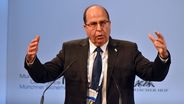
Palestinian society 'wishes for death and seeks destruction,' Ya'alon tells gathering of families of fallen soldiers.
Israeli Defense Minister Moshe Ya'alon said Tuesday that there was no room for comparing Israeli mourning to Palestinian mourning, since Palestinian society "wishes for death and seeds destruction."
"Mourning in a society that seeks life, a society that educates its sons to live, to be human, to act like humans, to strive for peace, that's our society," the defense minister, who was addressing a gathering organized by Yad Lebanim, the national organization for families of fallen soldiers, said.
"Facing us is a society that seeks death, like we see around us, their joy when the son becomes a martyr, a society that respects nothing," he said.
Ya'alon's comments alluded to the recent furor caused by Army Radio host Razi Barkai. Two weeks ago, in an interview with Public Security Minister Gilad Erdan over the demand by parents of East Jerusalem terrorists to receive the bodies of their children for burial, Barkai angered the parents of Israel Defense Forces soldiers who were killed in 2014's Operation Protective Edge in the Gaza Strip, Hadar Goldin and Oron Shaul, whose bodies have not been returned to their families.
Barzai had wondered if there were a difference between the feelings of Palestinian and Israeli parents whose children’s bodies are being held by the other side: by the Israeli government or, in the case of the soldiers, Hamas.
The Goldin and Shaul families complained bitterly over the comparison; Barkai apologized but refused to take back what he said.
"We're sending our soldiers to fight to protect our civilians, and we don't hide behind our civilians to fight against someone else," Ya'alon said. "A society that chooses life doesn't seek wars, but strives for peace and sees war as a necessity and that's what we're doing."
"That's why there's no comparison between mourning on our side and mourning on their side," Ya'alon concluded.
The defense minister's comments echoed a speech given by Israel Police Commissioner Roni Alsheich, who addressed the same forum the day before. “It is impossible not to feel the difference between the bereavement that accompanies and greets us in your gaze, and that which we have met intensively in recent years in the eyes of some of our neighbors,” he said.
Israeli Defense Minister Moshe Ya'alon said Tuesday that there was no room for comparing Israeli mourning to Palestinian mourning, since Palestinian society "wishes for death and seeds destruction."
"Mourning in a society that seeks life, a society that educates its sons to live, to be human, to act like humans, to strive for peace, that's our society," the defense minister, who was addressing a gathering organized by Yad Lebanim, the national organization for families of fallen soldiers, said.
"Facing us is a society that seeks death, like we see around us, their joy when the son becomes a martyr, a society that respects nothing," he said.
Ya'alon's comments alluded to the recent furor caused by Army Radio host Razi Barkai. Two weeks ago, in an interview with Public Security Minister Gilad Erdan over the demand by parents of East Jerusalem terrorists to receive the bodies of their children for burial, Barkai angered the parents of Israel Defense Forces soldiers who were killed in 2014's Operation Protective Edge in the Gaza Strip, Hadar Goldin and Oron Shaul, whose bodies have not been returned to their families.
Barzai had wondered if there were a difference between the feelings of Palestinian and Israeli parents whose children’s bodies are being held by the other side: by the Israeli government or, in the case of the soldiers, Hamas.
The Goldin and Shaul families complained bitterly over the comparison; Barkai apologized but refused to take back what he said.
"We're sending our soldiers to fight to protect our civilians, and we don't hide behind our civilians to fight against someone else," Ya'alon said. "A society that chooses life doesn't seek wars, but strives for peace and sees war as a necessity and that's what we're doing."
"That's why there's no comparison between mourning on our side and mourning on their side," Ya'alon concluded.
The defense minister's comments echoed a speech given by Israel Police Commissioner Roni Alsheich, who addressed the same forum the day before. “It is impossible not to feel the difference between the bereavement that accompanies and greets us in your gaze, and that which we have met intensively in recent years in the eyes of some of our neighbors,” he said.
17 feb 2016
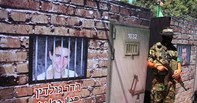
The Israeli premier Benjamin Netanyahu has discussed, during his meeting with German Chancellor Angela Merkel in Berlin, the file of the captured soldiers in Gaza Strip, Ma'ariv Hebrew newspaper reported.
During the meeting, Netanyahu asked for help in revealing the whereabouts of the two Israeli soldiers Oron Shaul and Hadar Goldin who went missing during Israeli ground offensive on Gaza in August 2014.
Israel has tried more than once to solicit help in the issue of the captured soldiers’ file in a failed attempt to reveal their whereabouts. However, the Palestinian resistance refused to disclose any information about the captured soldiers until a number of its conditions and demands are met, mainly the release of all ex-detainees who were rearrested after their liberation in Shalit swap deal.
The Palestinian resistance has managed during Israel’s summer aggression on Gaza to capture two Israeli soldiers, while some reports said that three soldiers were captured.
During the meeting, Netanyahu asked for help in revealing the whereabouts of the two Israeli soldiers Oron Shaul and Hadar Goldin who went missing during Israeli ground offensive on Gaza in August 2014.
Israel has tried more than once to solicit help in the issue of the captured soldiers’ file in a failed attempt to reveal their whereabouts. However, the Palestinian resistance refused to disclose any information about the captured soldiers until a number of its conditions and demands are met, mainly the release of all ex-detainees who were rearrested after their liberation in Shalit swap deal.
The Palestinian resistance has managed during Israel’s summer aggression on Gaza to capture two Israeli soldiers, while some reports said that three soldiers were captured.
1 feb 2016
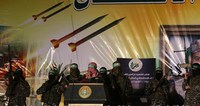
Al-Qassam Brigades, the armed wing of Hamas, has said that it has surprises for the Israeli occupation army in any coming battle, and trump cards that will force the Israelis to release Palestinian prisoners.
This came in a speech delivered by spokesman for al-Qassam Brigades Abu Obeida during a memorial ceremony held for the seven martyrs, who died a few days ago in a tunnel collapse in Gaza.
"The resistance has become able to build up its strength after every battle, and it has the full right to do this, not because it seeks to fight a war but to get prepared for it," Abu Obeida stated.
"If the Zionist enemy dared to commit any folly against our people and land, the resistance would shake the ground under its feet and take it by surprise," he added.
The spokesman also promised the Palestinian prisoners in Israeli jails that al-Qassam Brigades would force the Israelis to release them soon. "Our people will celebrate your release soon, God willing, at the wedding of freedom and the great victory," he said.
This came in a speech delivered by spokesman for al-Qassam Brigades Abu Obeida during a memorial ceremony held for the seven martyrs, who died a few days ago in a tunnel collapse in Gaza.
"The resistance has become able to build up its strength after every battle, and it has the full right to do this, not because it seeks to fight a war but to get prepared for it," Abu Obeida stated.
"If the Zionist enemy dared to commit any folly against our people and land, the resistance would shake the ground under its feet and take it by surprise," he added.
The spokesman also promised the Palestinian prisoners in Israeli jails that al-Qassam Brigades would force the Israelis to release them soon. "Our people will celebrate your release soon, God willing, at the wedding of freedom and the great victory," he said.
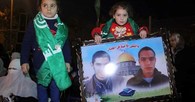
Political bureau member of Hamas Khalil al-Hayya urged, on Sunday, the Palestinian masses to take part in the current anti-occupation intifada, hailing at the same time the Qassam fighters who died in a tunnel collapse.
Speaking during a ceremony to mourn the seven Hamas fighters who died in a tunnel collapse in blockaded Gaza, senior Hamas leader Khalil al-Hayya said “every single Palestinian” should be engaged in the anti-occupation uprising.
“Palestine is our source of unity. Occupied Jerusalem is out shared destination,” he stated.
Al-Hayya also hailed the officer Amjed al-Askari who carried out an anti-occupation shooting in Ramallah on Sunday. "The tunnel in which our seven martyrs died is the same one that was used by al-Qassam resistance brigades to capture the Israeli soldier Oron Shaul in the 2014 summer offensive on Gaza," he said.
“Unlike the Israelis, we’ve never had a soft spot for bloodshed; we are rather keen on our motherland, freedom, independence and holy sites,” he said. He added that the historic funeral processions held for the seven Qassam fighters on Friday amounted to a national referendum on Palestinians’ back up for armed resistance.
Al-Hayya also slammed the UN Chief Ban Ki-moon for his anti-Palestine position and silence over Israeli crimes against the Palestinians. Seven fighters of al-Qassam Brigades died on Tuesday after an anti-occupation tunnel they were reconstructing collapsed.
Speaking during a ceremony to mourn the seven Hamas fighters who died in a tunnel collapse in blockaded Gaza, senior Hamas leader Khalil al-Hayya said “every single Palestinian” should be engaged in the anti-occupation uprising.
“Palestine is our source of unity. Occupied Jerusalem is out shared destination,” he stated.
Al-Hayya also hailed the officer Amjed al-Askari who carried out an anti-occupation shooting in Ramallah on Sunday. "The tunnel in which our seven martyrs died is the same one that was used by al-Qassam resistance brigades to capture the Israeli soldier Oron Shaul in the 2014 summer offensive on Gaza," he said.
“Unlike the Israelis, we’ve never had a soft spot for bloodshed; we are rather keen on our motherland, freedom, independence and holy sites,” he said. He added that the historic funeral processions held for the seven Qassam fighters on Friday amounted to a national referendum on Palestinians’ back up for armed resistance.
Al-Hayya also slammed the UN Chief Ban Ki-moon for his anti-Palestine position and silence over Israeli crimes against the Palestinians. Seven fighters of al-Qassam Brigades died on Tuesday after an anti-occupation tunnel they were reconstructing collapsed.
4 jan 2016

Al-Qassam Brigades, the armed wing of Hamas, released new video clips on Sunday showing a special unit called "the Shadow Unit" guarding and humanly treating Israeli soldier Gilad Shalit when he was in captivity.
The video highlights members of the Shadow Unit as a highly trained and well-chosen team, who are assigned to guard and hide enemy captives held by al-Qassam Brigades and thwart attempts to find them.
"Members of the unit stay in the shadows, away from the light … and they operate in complete secrecy," a spokesman for the Brigades says in the video.
The spokesman emphasizes that "members of the unit treats enemy captives well in line with the rules of Islam, and provides for their needs."
He says this elite unit was established a decade ago and its members are "selected from all the military formations of the Brigades."
Shalit is also seen eating, watching TV, reading letters from his family, drinking tea and talking with Hamas fighters and grilling meat at a beach barbecue in their company.
In one clip, Shalit sits in a large cell with an exercise bicycle and adjoining toilet as someone brings him a soft drink.
Shalit was released in October 2011 as part of a prisoner swap deal with the Israeli occupation government. New Video Shalit 3 jan 2016
The video highlights members of the Shadow Unit as a highly trained and well-chosen team, who are assigned to guard and hide enemy captives held by al-Qassam Brigades and thwart attempts to find them.
"Members of the unit stay in the shadows, away from the light … and they operate in complete secrecy," a spokesman for the Brigades says in the video.
The spokesman emphasizes that "members of the unit treats enemy captives well in line with the rules of Islam, and provides for their needs."
He says this elite unit was established a decade ago and its members are "selected from all the military formations of the Brigades."
Shalit is also seen eating, watching TV, reading letters from his family, drinking tea and talking with Hamas fighters and grilling meat at a beach barbecue in their company.
In one clip, Shalit sits in a large cell with an exercise bicycle and adjoining toilet as someone brings him a soft drink.
Shalit was released in October 2011 as part of a prisoner swap deal with the Israeli occupation government. New Video Shalit 3 jan 2016
Page: 2 - 1
SWAP - A - B - C - D - E - F - G - H - I - J - K - L - M - N - O - P - Q - R - S - T - U - V - W - X - Y - Z
